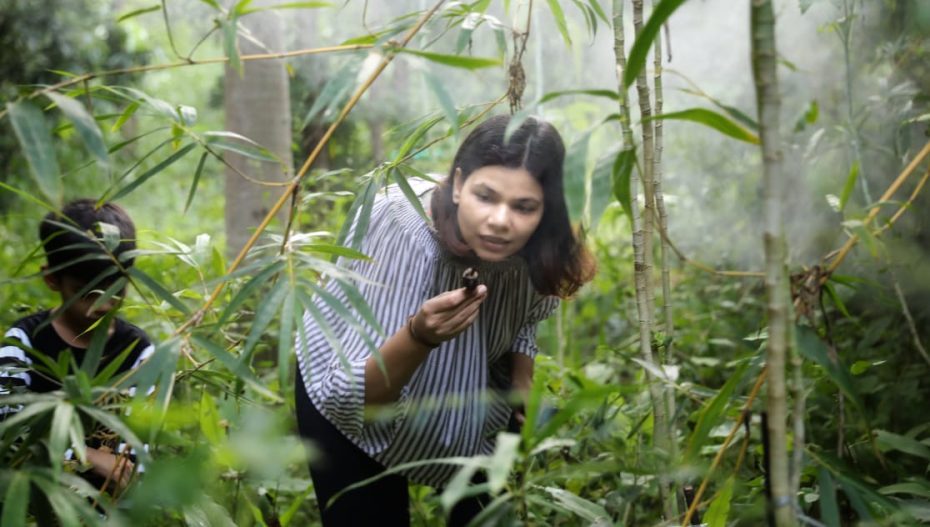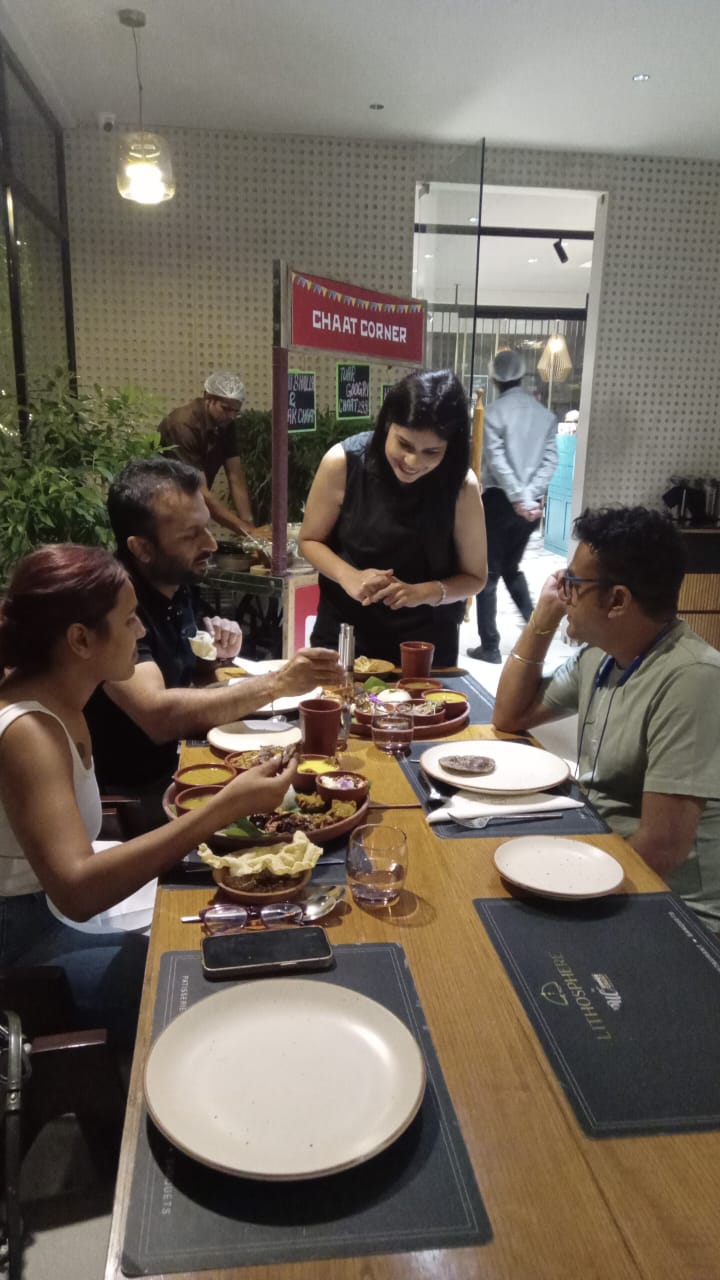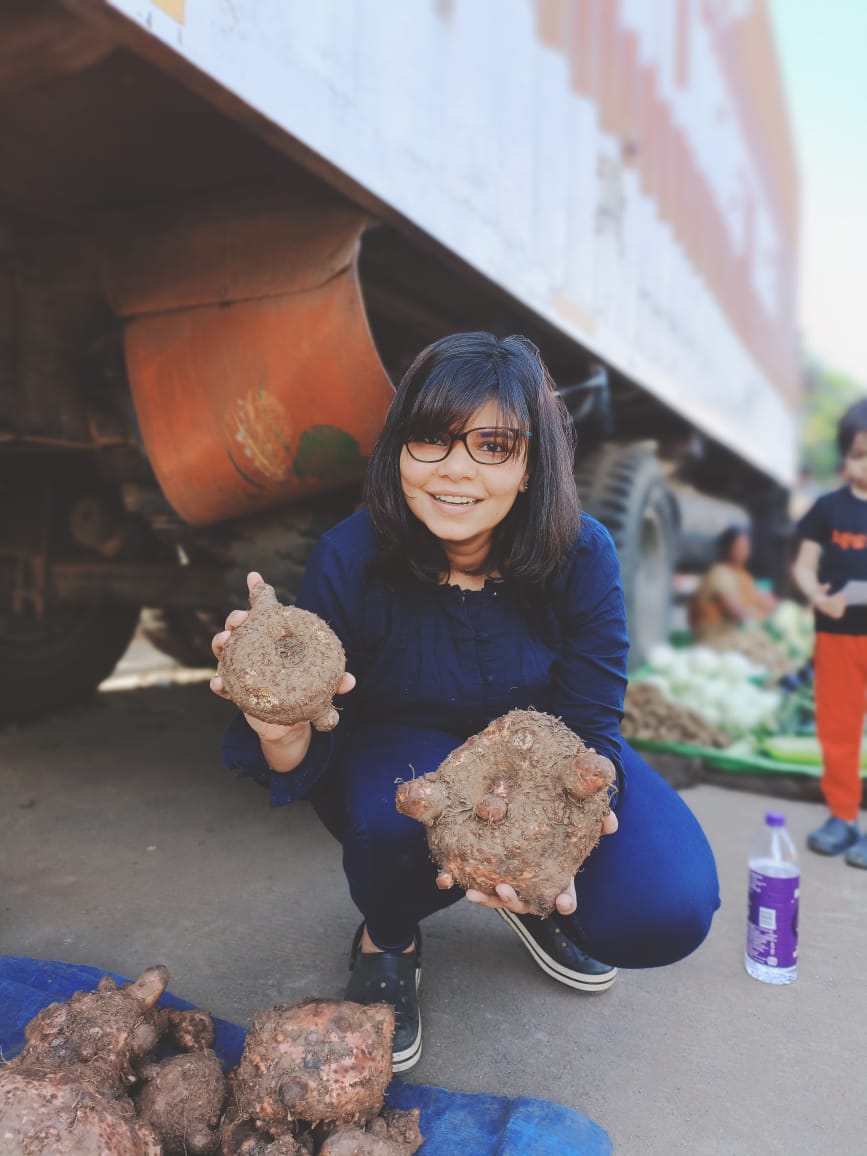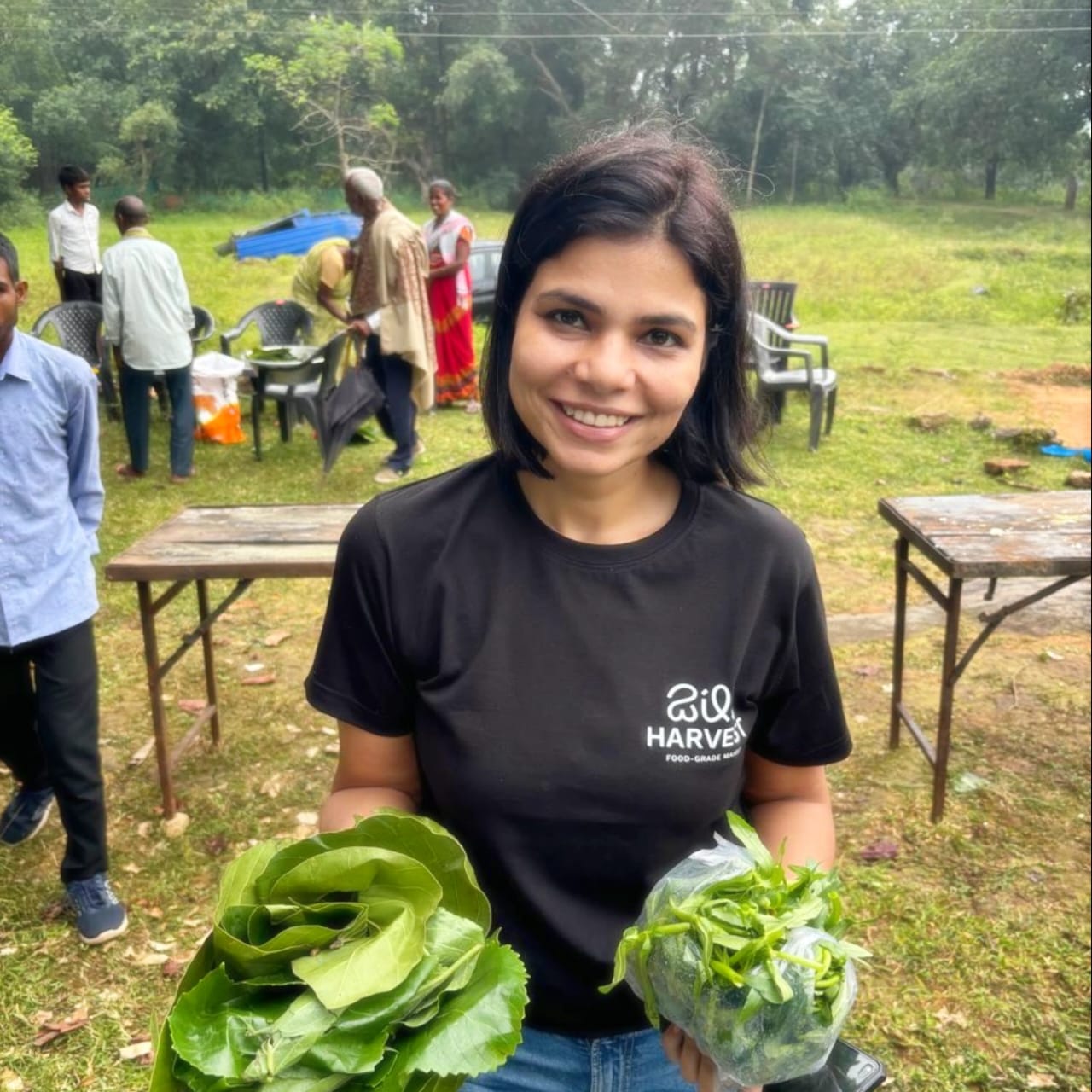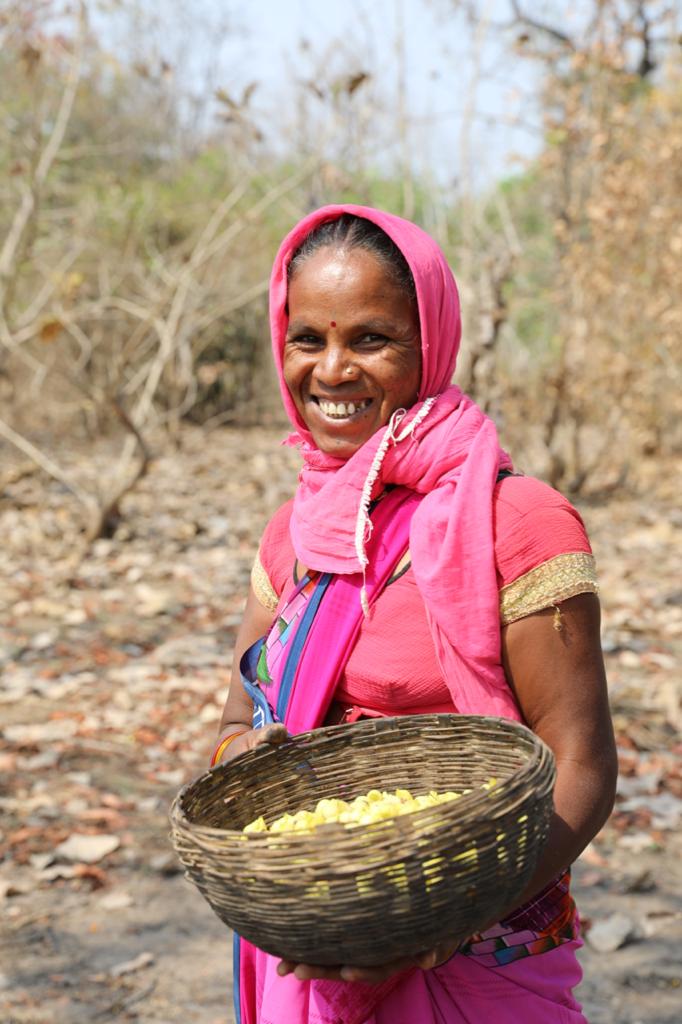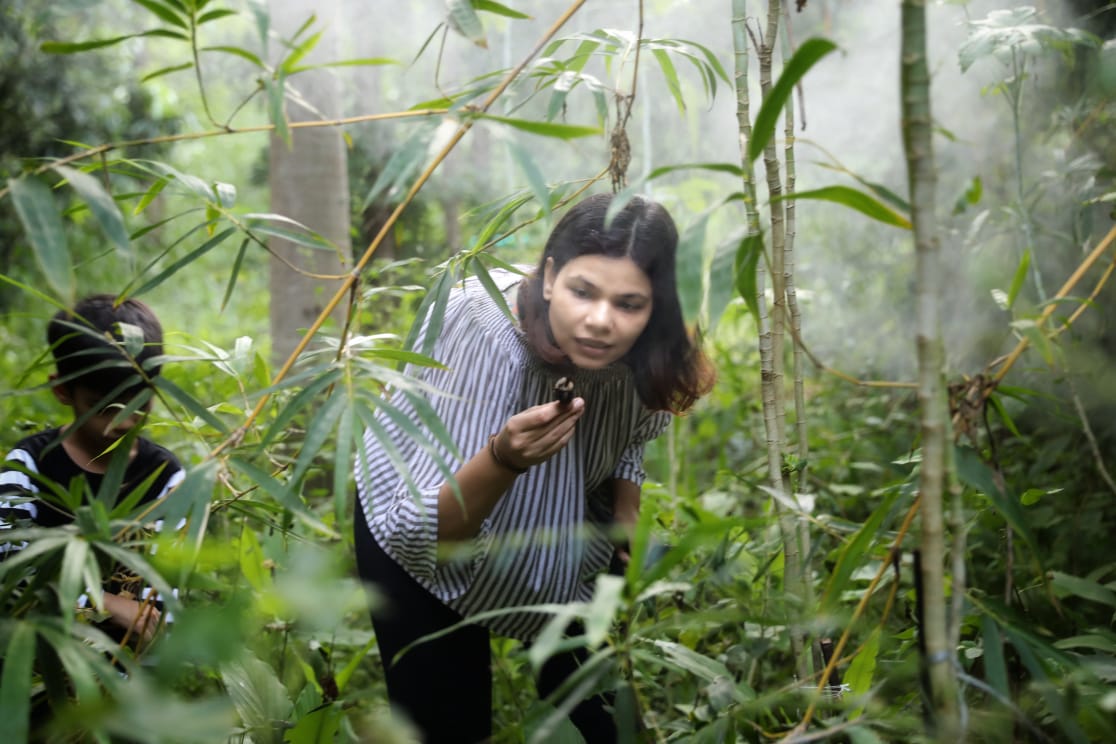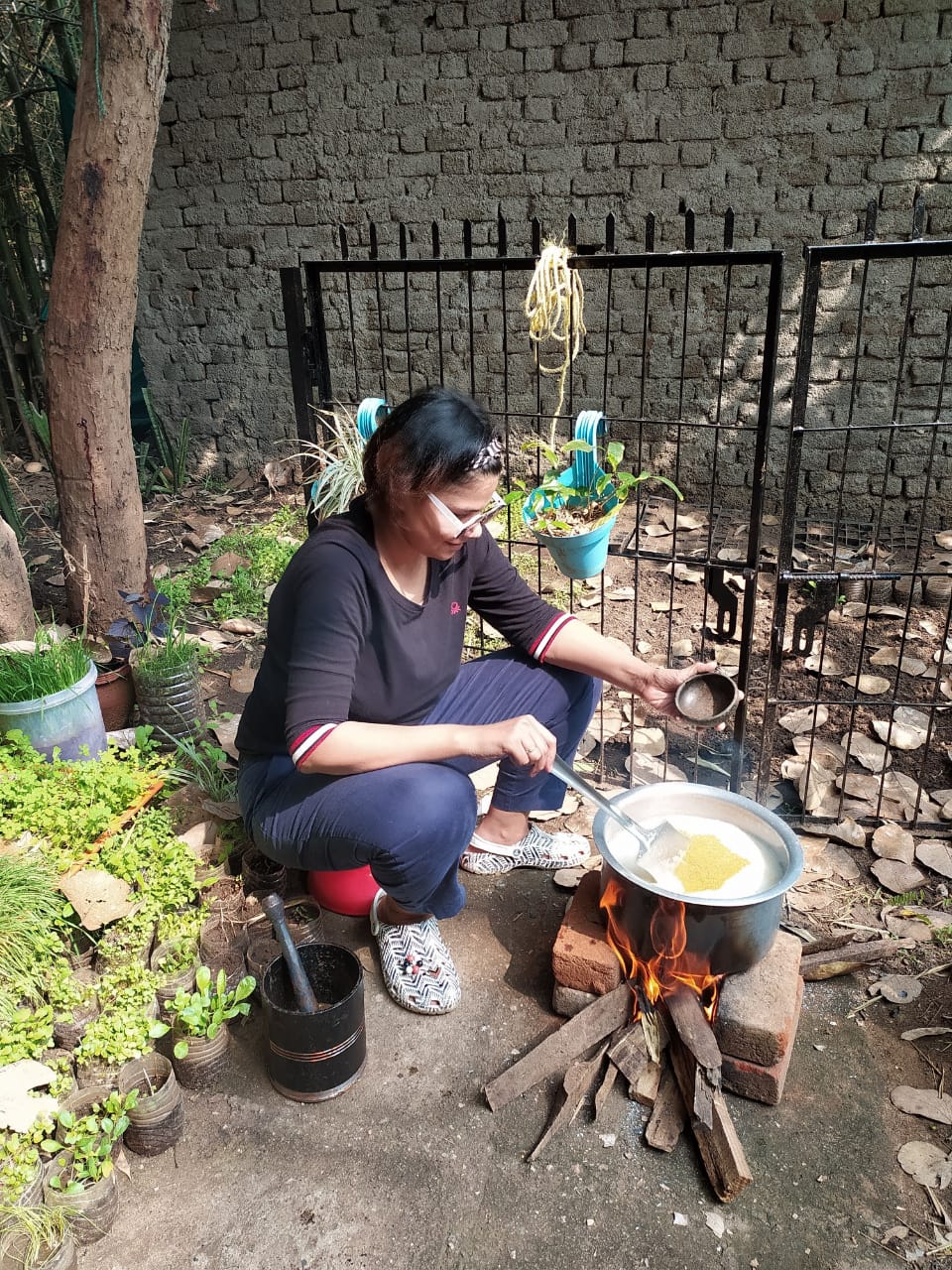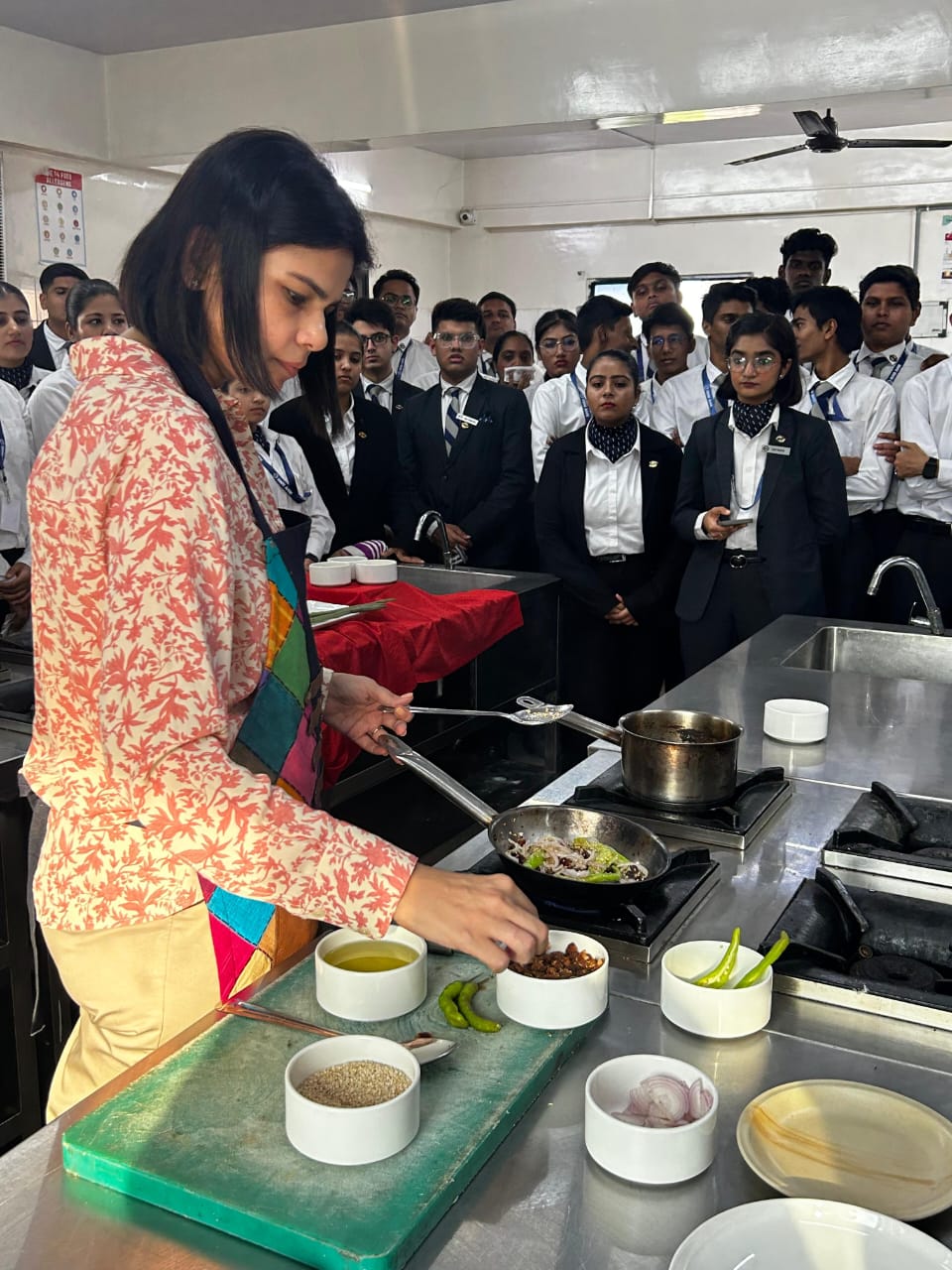City-dwellers are yet unexposed to traditional tribal cuisine. To fill this gap, Harshita Kakwani got deeply involved in exploring and promoting tribal foods. Harshita was recently in Ahmedabad to conduct a forest food festival.
She also held a session on superfoods for students of IIHM (International Institute of Hotel Management), Ahmedabad. She taught the upcoming chefs how to use ‘mahua’ flowers in cooking, among other things.
Harshita’s journey with tribal cuisine began 10 years ago when she came to live near Pench National Park in Madhya Pradesh. “My husband and I wanted to move to a quiet place. We wanted our children to be in the forest in their early years,” says the 39-year-old.
Incidentally, both her maternal and paternal grandfathers started their journeys in the food business in different cities. Growing up, she has fond memories of visiting their establishments. Harshita has a BBA degree from Indore. After that she did an MBA from London in marketing management.
Harshita set up Prana Superfoods seven years ago with the goal of bringing the indigenous ingredients and culinary traditions of the tribal communities to a wider audience. Apart from give urbanites a taste of tribal cuisine, the objective of Prana is to preserve the traditional knowledge base.
Twin goals
The venture not only celebrates tribal heritage but also creates income opportunities for rural women and marginal farmers. Harshita also has a cafe in Pench called ‘Earth Song Cafe’ where a special menu offers traditional tribal foods. In addition to packaged products, she hosts regular pop-ups featuring traditional tribal cuisine.
“I belong to Indore. When I got the opportunity to live in the forest area it was something I had dreamt of all my life. Living close to nature and seeing how people are attached to ancient wisdom and how they apply it to their daily life has been an amazing experience. We grow vegetables and fruits. It is literally ‘farm to table’ at our cafe,” she says.
While she was living in the forest, she learnt about ayurvedic nutrition. “The idea was to keep the family healthy as access to medical care was not easy. I am currently studying infant and child nutrition,” says the entrepreneur.
Harshita learnt tribal cuisine from the locals. When they picked ingredients from her backyard, she would ask them how they used it in cooking. “I would also research about the health benefits. I began documenting recipes for myself and sharing them on social media. ‘Amaltas’ flowers growing on the roadside in many cities. Not many people know they can be used in cooking. Tribal communities make sherbet from the ‘Palash’ flower (Flame of the forest flower) as it has cooling properties,” says Harshita.
She also started following seasonal food patterns like the tribals did. So picked up traditional home remedies and learnt how to boost immunity. “I had access to herbs, fresh air and clean water. I learnt how to use the herbs and traditional ingredients.”
Winning trust
The company procures from marginal farmers in villages around Pench. Some of the villages are Awargani, Khamba, Kohka and Telia. There are several logistical issues. There is no rail line or bus service till where Harshita lives.
“The farmers have small holdings as they live in the forest. It took a while to win their trust. We urge them to grow produce without use of chemicals. We have taught them to make ‘jeevamrut’ with cow dung and urine to use as manure. They were not aware of the value of some of the plants that grow in the region. For instance, blue pea flowers (Aparajita), which grow in the wild, are worth Rs 6-7,000 a kg in cities. The flowers are used to give natural colouring to food and are antioxidants. We use the flower in tisanes (herbal teas without caffeine) and desserts,” says Harshita.
Products sold
Prana Superfoods sells forest honey, masalas and spices, jams and chutneys, tisanes made with hibiscus, rose and jasmine, pickles and skin superfoods (soaps, ‘uptans’ and aloe vera gel). Lemon ginger squash, smoked mango chutney, lemon date chutney, mahua tamarind chutney and ‘saoji masala’ (a 15 masala mix which is an heirloom recipe) are some of the popular items.
Some of the other products on offer are infused honey (infused with cinnamon, saffron or lavender which gives the honey additional health benefits). The prices of packaged products range from Rs 200 to Rs 400. For instance, cinnamon infused honey is priced at Rs 325 for 350 gm, Desi garlic pickle comes for Rs 200 for 200 gm while ‘Desi gulaab gulkand with mishri’ costs Rs 300 for 300 gm. The venture also sells dried mahua flowers.
Good quality turmeric and chillies are grown for use in the packaged products as well as cooking. All the pickles are made using ayurvedic principles incorporating the six tastes (shadarasas), explains Harshita. The pickles do not contain preservatives or artificial colours and cold pressed oils and natural salts are used to make them.
Eco-friendly aspects
“Apart from growing the ingredients organically, we use every part of the plant. When we make lemon pickle or squash, we replant the seeds. Nothing is wasted. Dried lemon peels are used for body ‘uptan’ while fresh peels are used to make pickle. We also give away seeds that we don’t need to guests who came to our cafe,” says Harshita.
Composting is also practised. The processing is also eco-friendly with most of the processes being manual. The attempt is to process food using traditional methods. Cold pressed oils are used and the products are made in small batches to maintain quality.
“Pride in traditional tribal food is getting lost. If there is demand from city-dwellers and tourists, the knowledge and practices won’t die. I have kept the venture small so that I can care for my children as well as do something I am deeply interested in,” signs off Harshita.
Also Read: Pakistani Teen Reunited with Parents After 31 Months in Indian Custody


